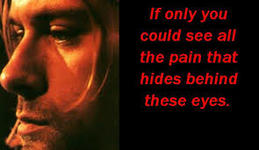|
|
| FAQ/Help |
| Calendar |
| Search |
|
#1
|
||||
|
||||
|
What's the difference between PPD and schizoaffective disorder? Does anyone know? I can deal with my mood swings but the paranoia is my worst symptom. I hate all these labels. What's the difference, so many of the disorders have the same symptoms so how the hell are you suppose to know what you have?
__________________
 My Bi Polar Thread (Videos,Pics) http://forums.psychcentral.com/bipol...ted-daily.html Medications Xanax-Working so far |
|
#2
|
||||
|
||||
|
There is a difference between paranoid schizophrenia and the paranoid personality disorder. The paranoid personality disorder is not a form of schizophrenia. The person with only a personality disorder does not have delusions or hallucinations, just extreme suspiciousness. A paranoid schizophrenic has a complex delusional system that is usually organized around some coherent theme involving persecution or conspiracies by powerful, secret forces. If the paranoid schizophrenic hears voices, they usually relate to this theme.
~ from Table of Contents for Psychology: An Introduction by Russ Dewey
__________________
Dx: Me- SzA Husband- Bipolar 1 Daughter- mood disorder+ Comfortable broken and happy "So I don't know why I'm tongue tied At the wrong time when I need this."- P!nk My blog |
|
#3
|
||||
|
||||
|
Quote:
Well I've had delusions so I guess you just answered my question. My therapist told me not to worry about labels, but the labeling makes me feel like I'm not a regular person in society. Its such ********. We have feelings, talents, but labeling dampers my whole outlook on getting better. I feel like I have to fake being happy when I'm not. I wanna smile and mean it. I'm trying so hard. Now that I'm not drinking I have to deal with the feelings and it sucks.
__________________
 My Bi Polar Thread (Videos,Pics) http://forums.psychcentral.com/bipol...ted-daily.html Medications Xanax-Working so far |
Victoria'smom
|
|
#4
|
||||
|
||||
|
Labels or diagnoses are just a quick way to summarize groups of symptoms. I probably could pick any random person off of the street and if they told me all of the information relevant to their mental health, I could give them one or more diagnoses. It wouldn't change who they are or anything about them.
If you have symptoms that are a problem for you in one or more areas of living your life, then categorizing those symptoms might help your therapist to have a general idea of what kinds of things to address to help you to overcome the problems. And it may tell your insurance company that there is a valid reason for you to get treatment and help them to made a decision about covering that treatment. That's really pretty much what a diagnosis is for. There are a lot of diagnoses that can overlap quite a bit, and it can be pretty confusing. Your diagnosis can change over time, too. One general way to tell the difference between a personality disorder and an Axis I disorder such as schizoaffective is who is mostly bothered by the symptoms. A lot of the time, people who have a personality disorder may not feel like the things that they do are much of a problem, but but it might be driving other people nuts. People with Axis I disorders tend to experience more pain and suffering. Most people with personality disorders don't only have personality disorders though. Most have an Axis I disorder (or more) as well, and that complicates things but it is how things are a lot of the time. It is very possible to have PPD as a baseline, and also have schizoaffective disorder which results in periodic mood swings with delusions.
__________________
We should always pray for help, but we should always listen for inspiration and impression to proceed in ways different from those we may have thought of. John H. Groberg 
|
|
|